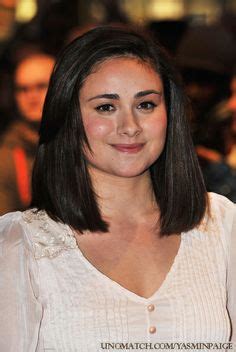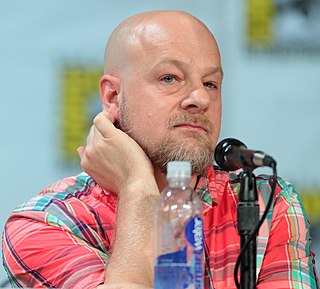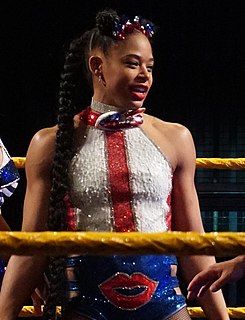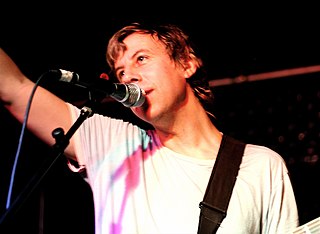A Quote by Yasmin Paige
I had a very short time on that film [The Possibilities Are Endless] and it was quite strange because the process was kind of like a documentary, which was different for me. The way everything was filmed was very casual.
Related Quotes
For me, filmmaking is an ongoing self-reflection process. I kind of push everything to the edge. I feel very exposed and fragile when I make a film. It's a process of dealing with loneliness. And it's also very dramatic - because while you are working on a film, you just realize how incapable you are of dealing with all these things. And you open yourself up, and it's like your heart is utterly exposed. And it's very tiring on a daily basis.
Even if the film doesn't come out quite as you'd hoped, the process can also be very rewarding. I feel that way about a film called 'Lay the Favorite' that I made with Stephen Frears. I did that because the character was a real leap for me. The film doesn't quite all add up internally, but I feel very proud of what I did on it.
The fact of having this very new context, this unheard-of way of working, for me was very pleasant. I didn't feel that I was working, that I had any kind of burden to wear, to carry. I really was very happy and very lighthearted during the whole process of making the film [Certified Copy], of shooting it.
Film team kept me very, very shielded when I was that young, because of course, I was seven years old. You know, you're still kind of reading. It's still kind of like, "Cat." "Dog." "Ann jumped over fence." So I guess in a way it helped me progress in school, too, because I was reading so much and memorizing so much. But they kept me very shielded from everything that was going on in the The Amityville Horror. I didn't know anything, basically, about the film. I just knew that it was a scary film. I wasn't allowed to watch it. I can watch it now, I'm just too scared.
I think of something quite different from a snapshot. I know of a lot of poems, some very fine ones, that are like snapshots, but I'm more interested in poetry that is like an endless film, long stories, things that weave together many different strands, like a big piece of cloth, not like a photograph.
If you've got a great crew it's intense, but its quite short. 'The Elephant Man' was longer than most, for an independent film. That was a 14 week film. But it was because of the intrinsic difficulties. We had to invent a different way of filming, because the makeup was so long. A working day for me with a full makeup on was nineteen hours. So obviously you couldn't do that twice running.
On one level, this was the biggest challenge out there - to make a film of this scope, in this amount of time, and to go into a different genre, essentially. Yes, I've done a vampire film, but 'Eclipse' is a very different kind of thing. This is a romantic story, which swings from a darker, more abject feeling to very pure romantic scenes.
I could never be a part of an adaptation of a film where there's pressure to not disappoint the immense fan base. In those cases, they often wind up with filmed books on tape, quite uncinematic. Having said that, I'd say all the adaptations I've done are quite faithful to the original... You have to pick and choose which storylines and plot threads, because you don't have the time to kill in the film as they have in novels. All those pages with detours and plots and different storylines. But films add a lot, and you gotta keep it moving.
I feel like I have a very strong character, I'm super talented and the possibilities are endless for Bianca Belair. She's somebody who can stand on her own and have a very successful, long career but at the same time I have no problem being paired with my husband in any shape or form because it's a part of who I am.
Usually I'm trying to get away from my discography. I don't think I could tear down everything I've done, the structures I've created - you know, like what Miles Davis did eight times in a row, which was destroy every kind of crutch or system he had for making music. That's very, very difficult. When I reflect on my catalog, I'm very proud of it, and I love it, but what I want to do now is completely different. When I don't do something different, I feel like I'm cheating - consciously or unconsciously stealing from myself.
I found the people to be very kind and generous. It was unique because the crew was mainly Ugandan [filming The Last King of Scotland]. They had never done a film before. So, they were learning the process of making films, but at the same time they were also helping with the authenticity of the film.
It was something very beautiful because we all had that interest. We were very close to all of the different groups of the time - the ones that we began to play with in the same venues - Maldita Vecindad, Caifanes, Botellita de Jerez. However, we were all very different, and each group had their unique way of expressing themselves; their own original voice. It was a very beautiful era of Mexican music, and the truth is that we are very fortunate to have been part of it.




































